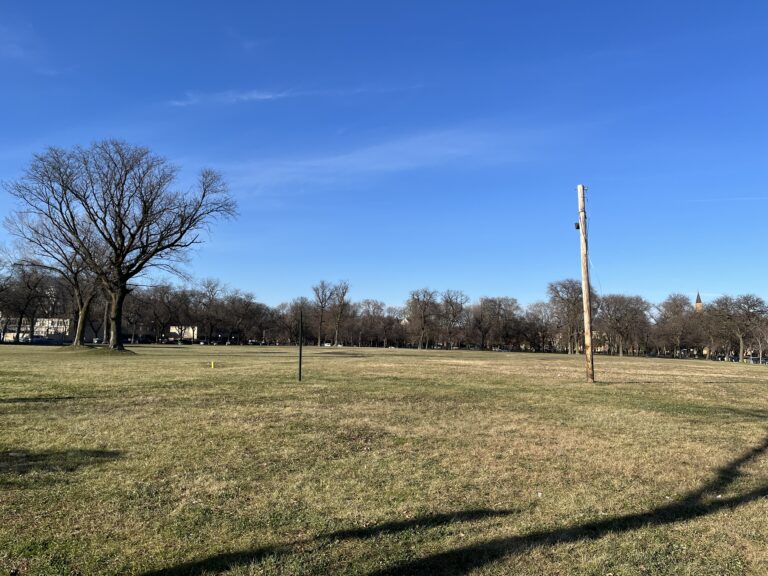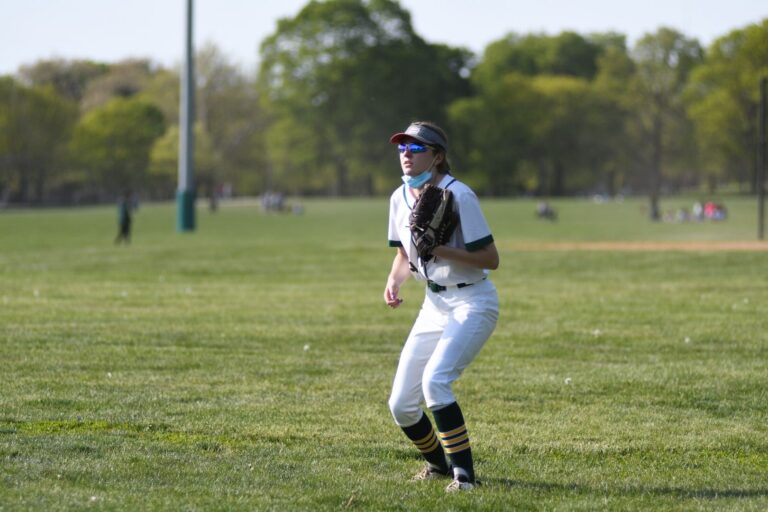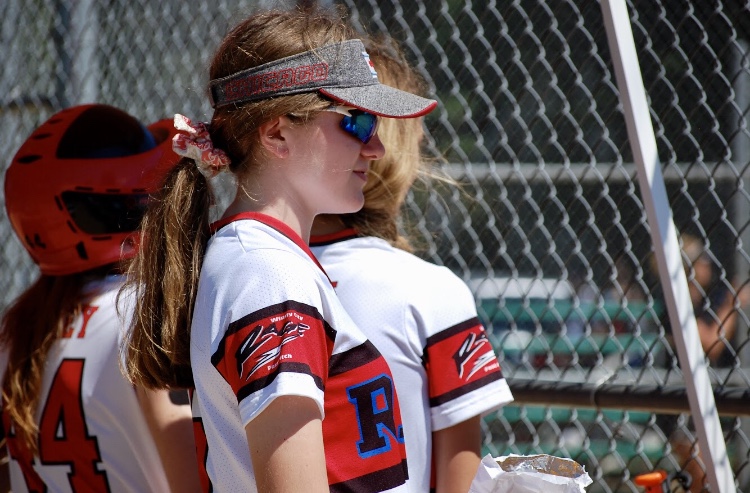In Due Time – How to Recover after Retiring from the Sport You Love
Ella Rappel
February 10, 2023
It took two months for the open field I walked by every day to start haunting me. Before, I had always carefully ignored just how much it resembled the fields I used to practice outfield drills on when I played softball. It didn’t last.

The day it happened, there wasn’t any particular reason. Maybe the chilly October air reminded me of the fall round robins that used to eat up my weekends. Maybe it was the distinct smell and crackling electricity of the inclement storm, a hallmark of those rainy Fall tournaments that I played in every year. Maybe it was the wind bringing the trees, the grass, and the wispy hairs that fell out of my ponytail to life. It could have been the smell of the dewy grass, damp from the previous night’s rain. Whatever it was, all of a sudden, I was struck by a nostalgia so acutely painful it stopped me dead in my tracks. That plain, empty grass field became a ghost of the diamond I had lived and died on for eight years, a cemetery of the lives I lived playing a sport that consumed me for my entire teen-dom. My grief had caught up with me, and for a minute, I was back on the field like I had never hung up my cleats.
Many retired athletes face similar crises. Research from Sunghee Park in the International Review of Sport and Exercise Psychology shows that almost every committed athlete has to grapple with some difficulties in their transition out of their sport, including “feelings of loss, identity crisis and distress when they ended their career and adjusted to post-sport life.” This research contends that the variety in athletes’ responses to their retirement is dependent on a number of factors, including athletic identity, demographics, how voluntary the retirement was, injuries/health problems, career/personal development, sports career achievement, self-perception, control of one’s life and more.

When I first Googled “how to get over quitting a sport” (sad, I know), a plethora of articles like Park’s popped up providing research and narratives chronicling individual experiences with retirement. However, I found that I didn’t see myself in most of them. Many were about forced retirement due to injury (and while I am no stranger to the trauma of major injury, I did not retire because of it). Counseling materials targeted toward retired college athletes often assumed that their audience felt defined by their status as an athlete, and suggested getting involved in other activities or finding your identity outside of your sport.
My experience didn’t fit into any of these categories. My reason for quitting was simple; I always knew I would choose a college primarily for academics over athletics, so I didn’t really try to get recruited (though I received a Division III offer). I knew I wanted to study English and writing, and I felt it was time to devote more of my energy to those pursuits. But I loved softball, and I loved my team and coach, who I had been playing with for five years. I couldn’t imagine giving them up when I still had the opportunity to play with them, so I played travel through my last year of eligibility, even though I was already a freshman in college. On July 31, 2022, I played my heart out in my final fastpitch softball tournament – the culmination of an eight-year career, including six years of competitive travel ball. The very next day, I signed the lease on my college apartment. Come October, I hadn’t played at all since that day in July.
According to the existing research, I should have had a higher quality of transition (i.e. an easier time moving on from my sport) than most. Though I did have some ongoing issues with various long-term injuries, they were manageable and weren’t forcing me into retirement. While being an athlete was certainly part of my identity, it was never the most central part of it; that was always my affinity for English. I retired voluntarily, knowing I had achieved what I wanted to, without being forced to retire by sudden injury or other circumstances. Softball wasn’t imperative to my self-esteem or my feeling of control over my life. So why does it still hurt? Why can’t I walk by that field without feeling the specter of a past life clinging to my shoulders? And how does it get better?
I’m not sure there’s a straightforward answer. Most people suggest playing in a recreational league or coaching, which I may do someday. But I know it won’t be the same, and not only because the competition won’t be as serious or personal. The connection I had with my teammates and coach was intense; I grew up with many of them, and they remain some of my closest friends. Even if I do play in a rec league someday, I know that the glory won’t taste as good without them. I’ve really only come to one conclusion, and it’s that I cannot govern my pain. According to Park, “post-sport life adjustment difficulties” reduce as time passes. It seems so cliche; “time heals all wounds.” But I suppose I don’t have much choice, so I’ll soldier on.
It will be hard, I know. But still, I have hope that moving on will be worth it one day. One warm October weekend, when I returned home to visit my family, my dad took me out to play ball with my youngest brother after far too long. He pitched to me, we threw the ball around, and I took outfield practice. I was delighted to discover that I could still smash the ball at the plate. I was less delighted to discover that my outfielding did not come back so easily. Most of all, though, I was so glad and so relieved to discover that softball could still exhilarate me like it used to, even if it isn’t in exactly the same way. There is something so satisfying, cathartic and irreplaceable about the way a solid piece of hitting reverberates through my palms, the way a strong, accurate throw makes me feel invincible. Softball is still joyful. How could it not be, when I’m standing on that field, the sun shining, and people I love cheering me on?
Even if it’s not the same as it once was, I know softball can still make me happy. One day, when I walk by that empty grass field, I will discover that fond memories have patched the hole my aching heart has pounded through my chest. All in due time.

